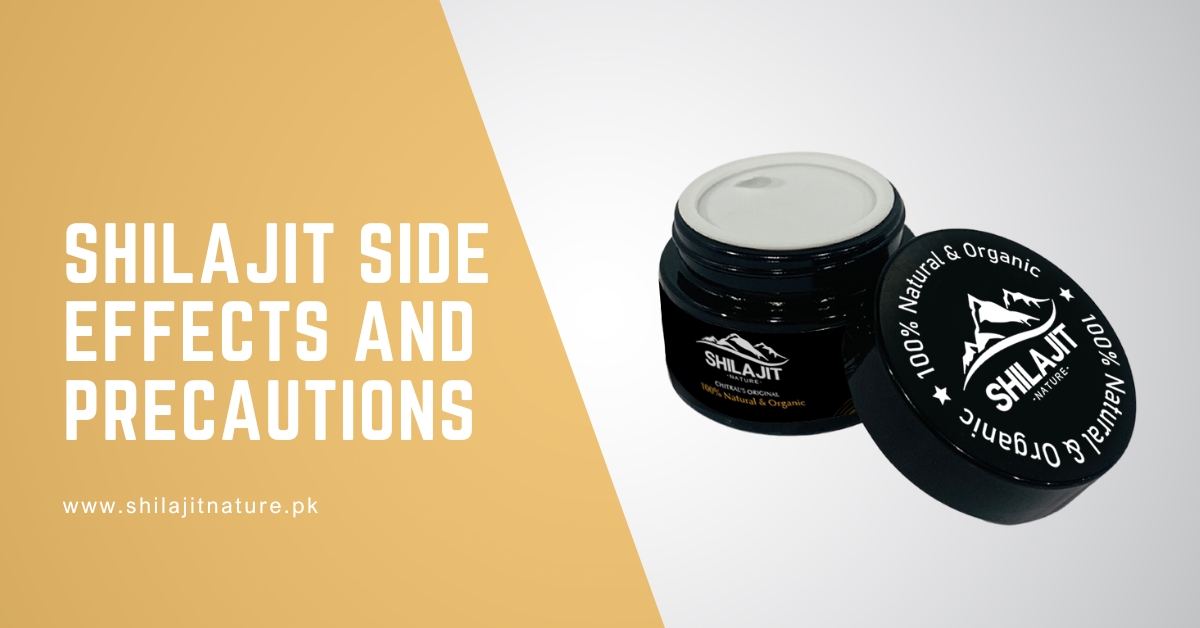Shilajit is a potent natural supplement that has been used in traditional medicine for centuries due to its health benefits. However, like any supplement, it’s important to understand how to store it, when it should be avoided, and its potential effects on certain health conditions. In this FAQ guide, we will address some of the most common questions about Shilajit, including its shelf life, side effects, and when it may not be suitable for use.
Does Shilajit Expire?
Shilajit does not expire in the traditional sense like food products, but its potency can degrade over time if not stored properly. When stored in optimal conditions, Shilajit can remain effective for a long period, potentially for several years. However, factors such as exposure to air, moisture, and extreme temperatures can affect its quality and potency.
Shelf Life of Shilajit:
- Shilajit Paste: When stored in a cool, dry place and kept sealed in an airtight container, Shilajit paste can last for up to 2-3 years without losing its effectiveness. It is important to avoid contamination by using clean utensils when scooping out the paste.
- Shilajit Capsules: Capsules usually come with an expiration date on the packaging, typically around 2 years from the date of manufacture. Always follow the recommended storage instructions, such as keeping the capsules in a dry, dark place.
Proper Storage of Shilajit:
- Keep it Airtight: Shilajit should be stored in an airtight container to prevent exposure to air and moisture, both of which can reduce its potency.
- Avoid Extreme Temperatures: Store Shilajit at room temperature, away from direct sunlight, excessive heat, or humidity.
- Refrigeration: While refrigeration is not necessary, it can help extend the life of Shilajit, especially in hotter climates. Just make sure to store it in an airtight container to avoid moisture buildup in the refrigerator.
When Not to Take Shilajit
While Shilajit is generally safe for most people, there are certain situations where it is best to avoid using it, particularly if you have specific health conditions or are on certain medications. Always consult with a healthcare provider before incorporating Shilajit into your regimen, especially if you have any underlying health concerns.
Situations When Shilajit Should Be Avoided:
- Pregnancy and Breastfeeding: Shilajit is not recommended for pregnant or breastfeeding women due to the lack of research on its safety during these stages. There is insufficient evidence to confirm whether it affects the health of the mother or child, so it’s better to avoid its use.
- Low Blood Pressure (Hypotension): Shilajit has been known to help regulate blood pressure, but in individuals with naturally low blood pressure, it may cause a further decrease, leading to dizziness, fainting, or weakness. If you have hypotension, you should avoid Shilajit or consult a healthcare provider before using it.
- Iron Overload Disorders (Hemochromatosis): Shilajit contains trace amounts of iron, which can potentially worsen conditions where there is an excess of iron in the blood, such as hemochromatosis. People with this condition should avoid using Shilajit to prevent further iron accumulation.
- Chronic Health Conditions (Heart, Kidney, Liver Issues): If you have a chronic health condition, particularly involving the heart, kidneys, or liver, it is important to talk to your doctor before using Shilajit. While it can offer general health benefits, it may interfere with certain medications or treatments.
- Heavy Metal Contamination Risk: Some lower-quality Shilajit products may contain heavy metals or other contaminants, which can pose health risks. Always purchase Shilajit from reputable sources that offer lab-tested products to ensure purity and safety.
Does Shilajit Raise Blood Pressure?
One of the most frequently asked questions about Shilajit is whether it can affect blood pressure. The answer is that Shilajit does not typically raise blood pressure in most individuals. In fact, Shilajit is more commonly associated with stabilizing blood pressure levels due to its adaptogenic properties, which help the body manage stress and balance bodily functions.
Shilajit’s Effect on Blood Pressure:
- Normalizing Blood Pressure: Shilajit may help in regulating blood pressure, especially in individuals dealing with hypertension (high blood pressure). By improving cardiovascular function and supporting the production of nitric oxide, Shilajit can help relax blood vessels, which may lead to lower blood pressure levels in some cases.
- Risk for Hypotension (Low Blood Pressure): While Shilajit does not raise blood pressure, individuals who already have low blood pressure (hypotension) may experience further decreases. This could lead to symptoms like dizziness, fainting, or extreme fatigue. If you have low blood pressure, it’s important to monitor your response to Shilajit closely.
Shilajit and Heart Health:
- Shilajit’s fulvic acid content is known for promoting heart health by improving the functioning of mitochondria, which produce energy for cells. This can help enhance endurance and reduce oxidative stress, benefiting overall cardiovascular function.
- However, if you have any pre-existing heart conditions or are taking medication for blood pressure, it’s essential to consult your healthcare provider before using Shilajit, as its impact may vary depending on your specific situation.
Conclusion
Shilajit is a powerful natural supplement with numerous health benefits, but like any supplement, it is important to use it properly and be aware of any potential side effects or contraindications.
- Shilajit does not technically expire, but its potency can be affected if not stored correctly, so always keep it in a cool, dry place.
- Certain individuals, such as those with low blood pressure or iron overload disorders, should avoid Shilajit, and pregnant or breastfeeding women should exercise caution.
- While Shilajit does not raise blood pressure, it may help stabilize it, particularly for those dealing with hypertension, but individuals with low blood pressure should be cautious.
By understanding how to store Shilajit and when to avoid it, you can maximize its benefits while minimizing any potential risks. Always ensure you’re purchasing high-quality, lab-tested Shilajit to reap the full advantages of this ancient health elixir.




